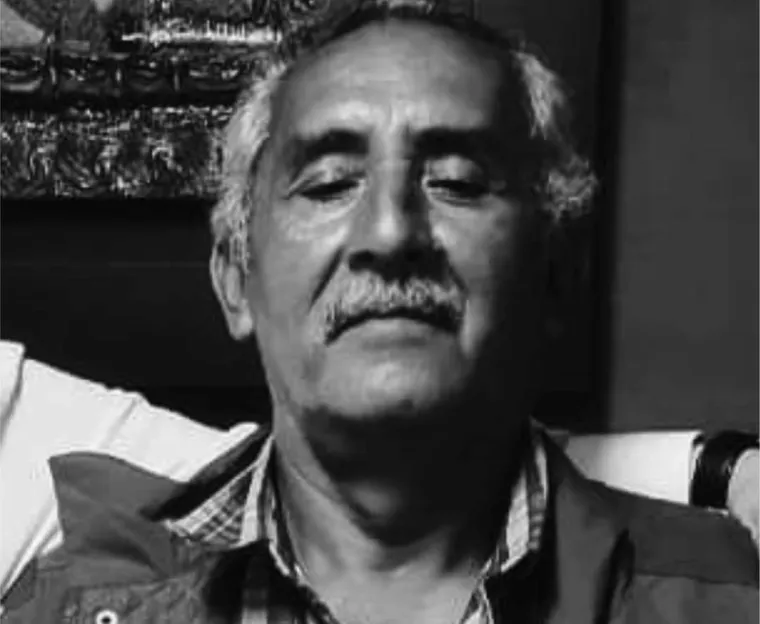Mexico City, February 2, 2022 – Mexican authorities must immediately and transparently investigate the killing of Roberto Toledo and determine whether he was killed in retaliation for his work, the Committee to Protect Journalists said Wednesday.
Toledo, a camera operator and video editor for news website Monitor Michoacán, was shot and killed on January 31, 2022, in Zitácuaro, a town 80 miles west of Mexico City in the Central Mexican state of Michoacán, according to a Facebook video statement by the website’s editor, Armando Linares, published the day of the attack.
Toledo is the fourth media worker killed in Mexico in less than a month. On January 10, José Luis Gamboa was stabbed to death in Veracruz and two other journalists, photographer Margarito Martínez and broadcast reporter and news anchor Lourdes Maldonado, were shot dead in Tijuana on January 17 and January 23 respectively.
“The shocking and brutal murder of Roberto Toledo comes after a staggering string of killings and attacks on Mexican journalists since the beginning of the year,” said Jan-Albert Hootsen, CPJ’s Mexico representative. “Mexican authorities have long been unwilling to take the most basic steps to make the country safer for the press and must now do everything in their power to stop the cycle of violence and impunity by bringing the killers to justice.”
Around 1:30 p.m. on January 31, Toledo was at the office of lawyer Joel Vera, also a Monitor Michoacán editor, to record a video column when the doorbell rang, according to Armando Linares, an editor of Monitor Michoacán, who spoke to CPJ by phone and a police report shared with local media on Tuesday, which was reviewed by CPJ.
When Toledo opened the door, he was shot from the street by an unknown number of attackers, according to those sources. Vera was unharmed during the assault. Toledo died of his injuries before emergency services could arrive.
The Michoacán state prosecutor’s office (FGE) has opened an investigation into the murder, according to a FGE statement, reviewed by CPJ. CPJ called Zitácuaro municipal authorities and a spokesperson for the Michoacán state prosecutor’s office several times on Monday and Tuesday for comment, but no one answered.
During the video statement published the day Toledo was murdered, Linares said the outlet had received death threats because of Monitor Michoacán’s criticisms of state and municipal authorities. He did not specify how the threats were sent.
Monitor Michoacán covers politics, crime, and security in the greater Zitácuaro area, publishing to its website and Facebook page. On January 27, four days before the attack, the outlet published a short commentary criticizing state authorities for allegedly changing information about people arrested on drug possession.
The same day, the outlet posted on Facebook that anonymous profiles accused Linares of having ties to the Jalisco Nueva Generación Cartel (CJNG), a notorious criminal enterprise that, according to news reports, has been involved in a series of murders and shootings in the Zitácuaro area.
On February 1, the day after the attack, Vera published a brief statement on Monitor Michoacán’s Facebook page saying he was saddened by the killing and calling on authorities to investigate. Several attempts to reach Vera by phone were unsuccessful.
Toledo, 55, joined Monitor Michoacán two years ago, Linares told CPJ. Linares said he wasn’t sure if Toledo was the intended victim or if the target was anyone at the Monitor Michoacán, adding that “regardless, I believe that Roberto was shot because he was in the way.”
An unnamed official of the Federal Mechanism for the Protection of Human Rights Defenders and Journalists, which operates under the auspices of the Federal Interior Secretariat and provides security measures for reporters at risk, told CPJ that his office had not been aware of threats against Toledo, Linares, or Vera, but that, in the wake of the killing, he reached out to Linares, which Linares confirmed on Monday. The official asked to remain anonymous, as he is not authorized to speak on the matter.
Michoacán and the Zitácuaro region have recently seen a sharp increase in criminal violence, according to Falko Erst, a senior analyst for the Crisis Group and longtime academic investigator of the state’s criminal groups.
In 2021, Mexico was the deadliest country for journalists in the Western Hemisphere, with at least three journalists murdered in direct relation for their work, according to CPJ research. CPJ is investigating another six killings that occurred in 2021 to determine the motive, as well as the three killings in 2022.
